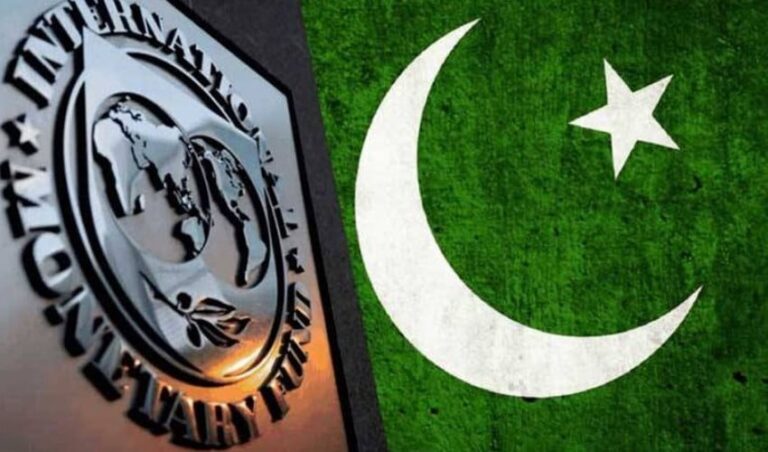ISLAMABAD:
The government has accepted the International Monetary Fund (IMF)’s major demand to completely open its economy to foreign competition by slashing the effective average import tariffs by one-third to just 7.1% over five years, particularly to open up the highly restricted automobile sector.
The minerals and auto sectors will be the two key areas for economic liberalisation under the IMF umbrella, said government sources. Pakistan’s restive Balochistan province is rich in minerals.
With the fresh understanding reached on Tuesday, Pakistan and the IMF have inched closer to a Staff-Level Agreement, a prerequisite for presenting the country’s case to the Executive Board for approval of the over $1 billion loan tranche, said government sources.
The negative impact of the one-third reduction in average tariffs would be Rs278 billion in tax revenues, which is expected to be compensated by an increase in economic activity driven by trade liberalisation.
The government has agreed to completely abolish additional customs duties, cut regulatory duties by 75%, and withdraw concessions under the fifth schedule of the Customs Act, according to sources.
It has been agreed that the weighted average applied tariffs will be reduced from the current 10.6% to just 7.1% over five years, starting in July this year, they added. This 33% reduction in tariffs will completely open the economy to foreign competition.
Pakistan’s agreement with the IMF on trade liberalisation comes at a time when the world is closing its borders to foreign companies, particularly the United Statesthe major shareholder of the IMF.
Pakistan’s companies are not attuned to foreign competition and have grown under the umbrella of tariff protection at the expense of consumers. The weighted average tariffs of South Asia are roughly 5.3%, while Asia’s average is 7.5%.
Sources said the understanding will be implemented through a new National Tariff Policy to be rolled out in July this year and a new Auto Industry Development and Export Policy to be implemented from July 2026.
Pakistan has assured the IMF that it will seek approval of the new tariff policy from the federal cabinet before the end of June. The tariff reduction will be implemented in the fiscal year 2025-26 budget, to be presented in Parliament in June.
According to the understanding, all additional customs duties will be removed over five years, while regulatory duties will be slashed by 75%. This will reduce the weighted average applied tariff from 10.6% to 7.1% by the fiscal year 2029-30.
Pakistan has also assured the IMF that in the future, it will not introduce any new regulatory duties except where essential, and a sunset clause will be introduced for their elimination.
According to the plan, additional customs duties will either be incorporated into customs duties or regulatory duties.
Cars will be cheaper
The major tariff changes will be introduced in the automobile sector, where the government has committed to ending undue protections for the auto industry by 2030. Pakistan assured the IMF that it will eliminate all additional customs duties and regulatory duties and also rationalise customs duty slabs. For the auto sector, weighted average tariffs will be brought down to 5.6%, said sources.
Sources said that during the inconclusive March 3-14 review talks, the IMF sought assurances that the tariff reduction plan would be implemented over five years and that the government would not derail it after the IMF programme ends in 2027.
However, Pakistani authorities argued that their average tariffs were already lower and that the total average was higher due to higher duties on alcoholic beverages and liquor. In the case of cars, however, tariffs were excessively high, with the highest slab reaching 196% of the vehicle price.
The IMF was told last week that the government would include objectives of export-led growth, green initiatives, and support for technology-intensive, high-value-added goods in the new tariff policy.
As a principle, tariffs will not be used as a tool to raise revenue, and once reduced, they will remain unchanged for three years.
Apart from the auto sector, trade restrictions, including any non-tariff barriers, will also be removed for the minerals sector, said sources.
Pakistani authorities believe that Free Trade Agreements are a key reason behind high regulatory duties, as the government uses these duties to curb the influx of imported goods from China.
Sources said the estimated revenue implications of tariff rationalisationincluding customs duties, additional customs duties, and regulatory dutiesover five years amount to Rs278 billion. Any reduction in customs duty collection will be more than compensated through increased tax collection at both the import and domestic levels, they added.
The boost in overall economic activity will lead to a net increase in all other domestic taxes, with cumulative tax collections expected to rise by Rs1.4 trillion, according to the Commerce Ministry’s projections.
Authorities believe that trade liberalisation could push exports to $47 billion by 2030 and that the economy could grow by 4.6%.
The IMF inquired about the process of imposing duties and was told that the Tariff Policy Board is often bypassed by the Federal Board of Revenue (FBR), said sources.
The principle for reducing tariffs will be based on the import share of the product, its contribution to total manufacturing, competition levels, and its impact on downstream industries.

